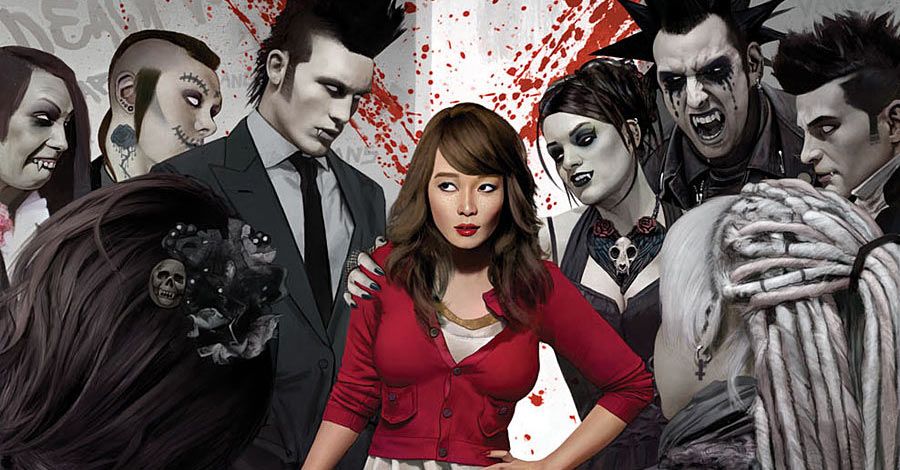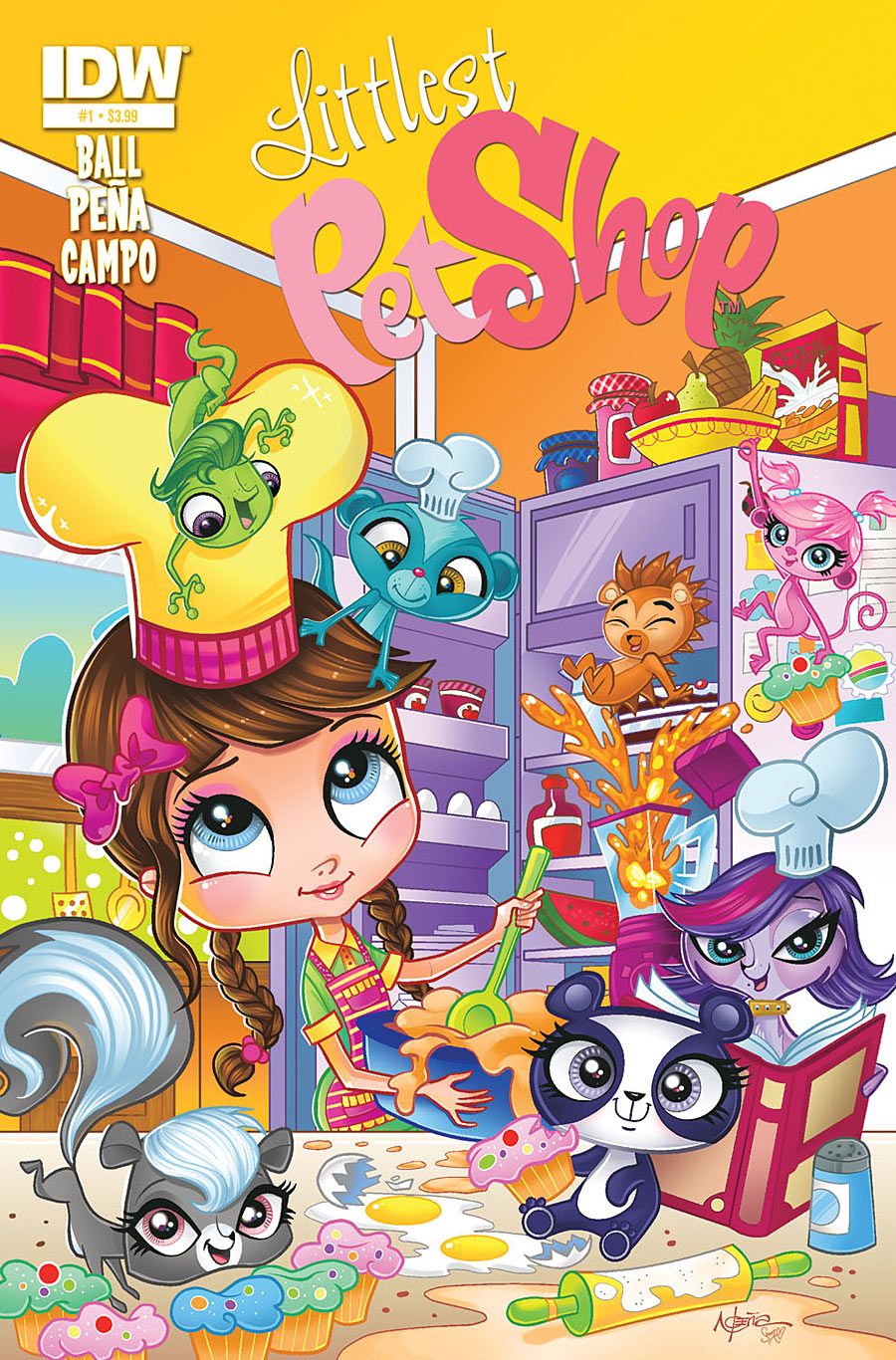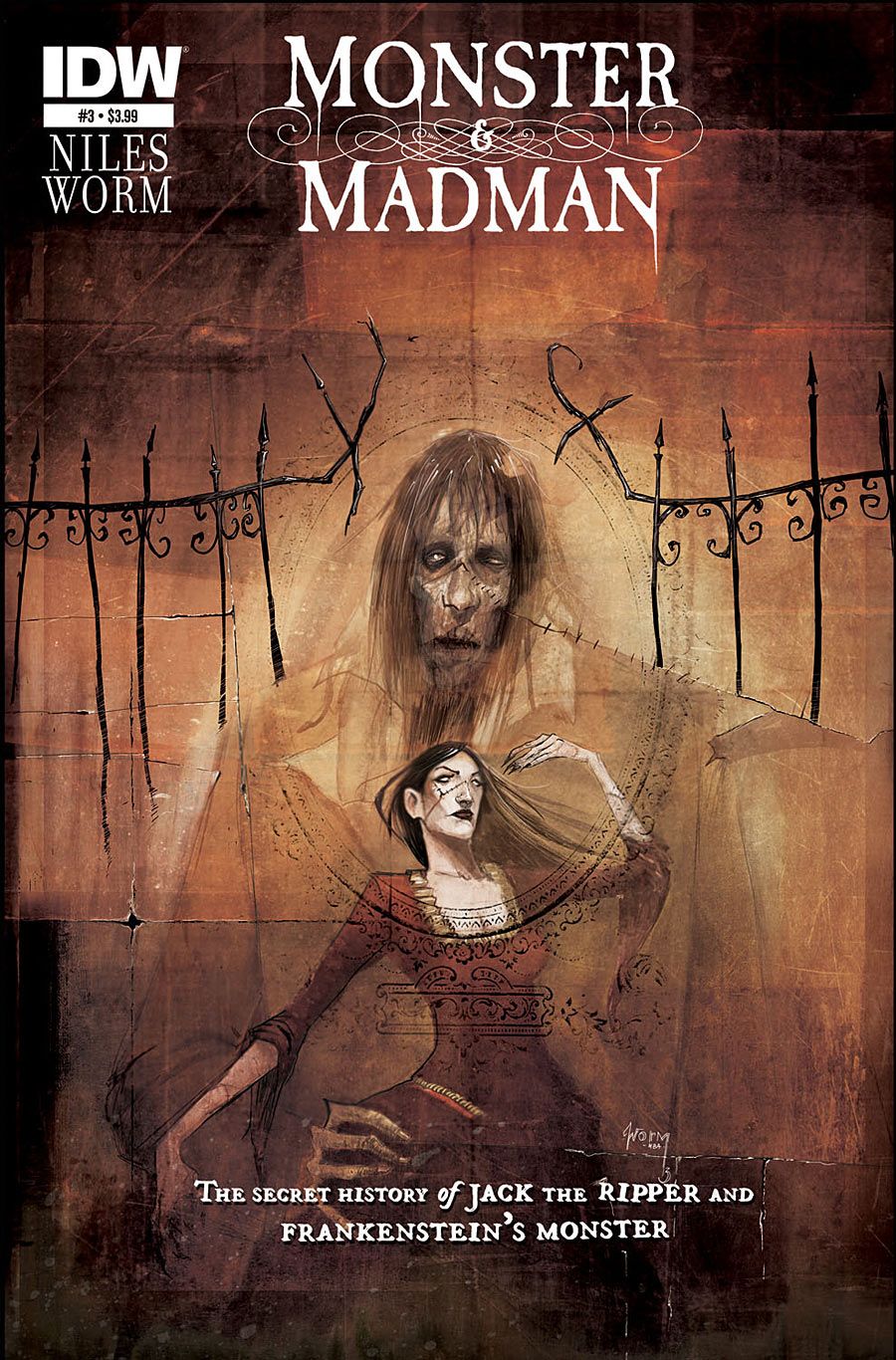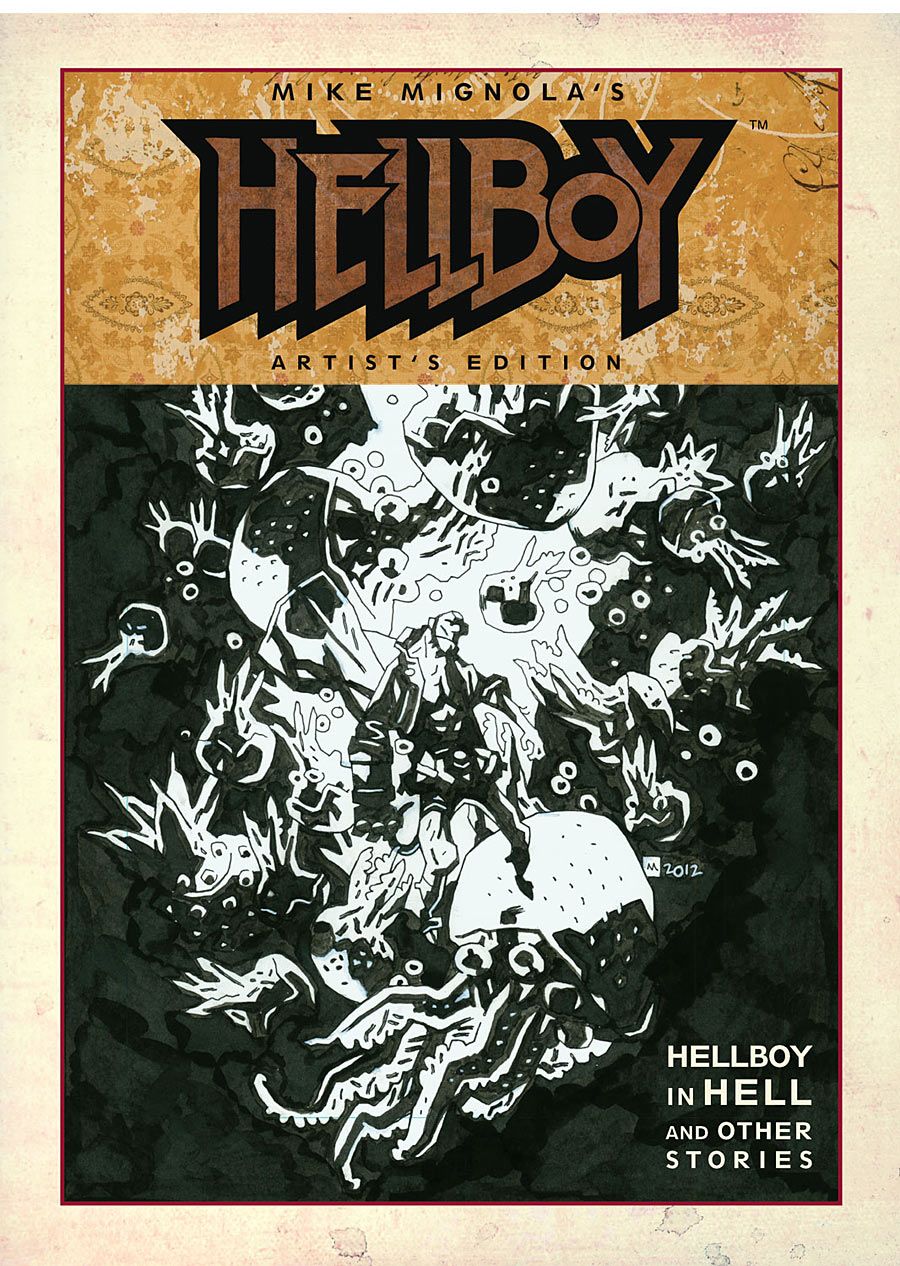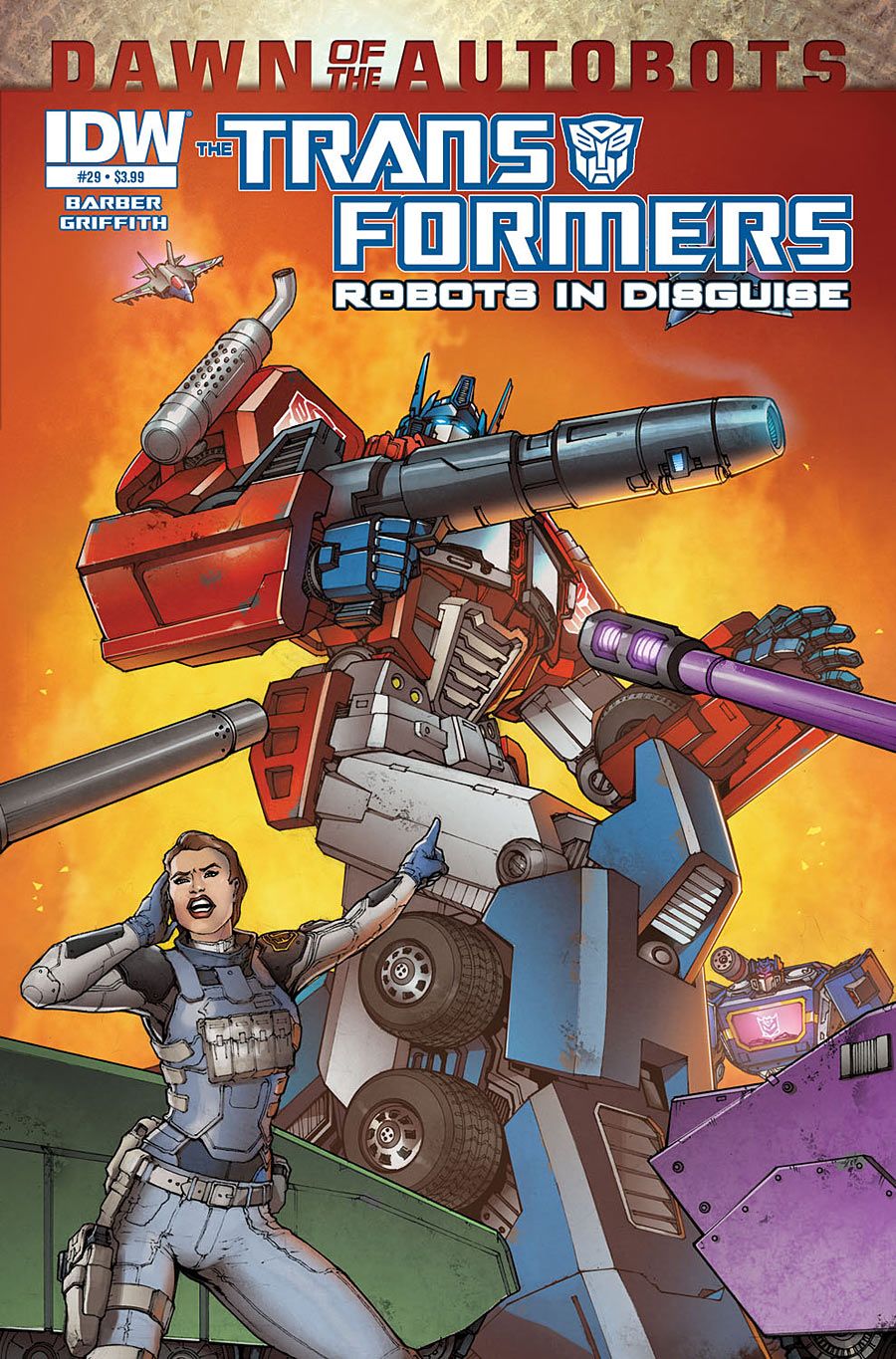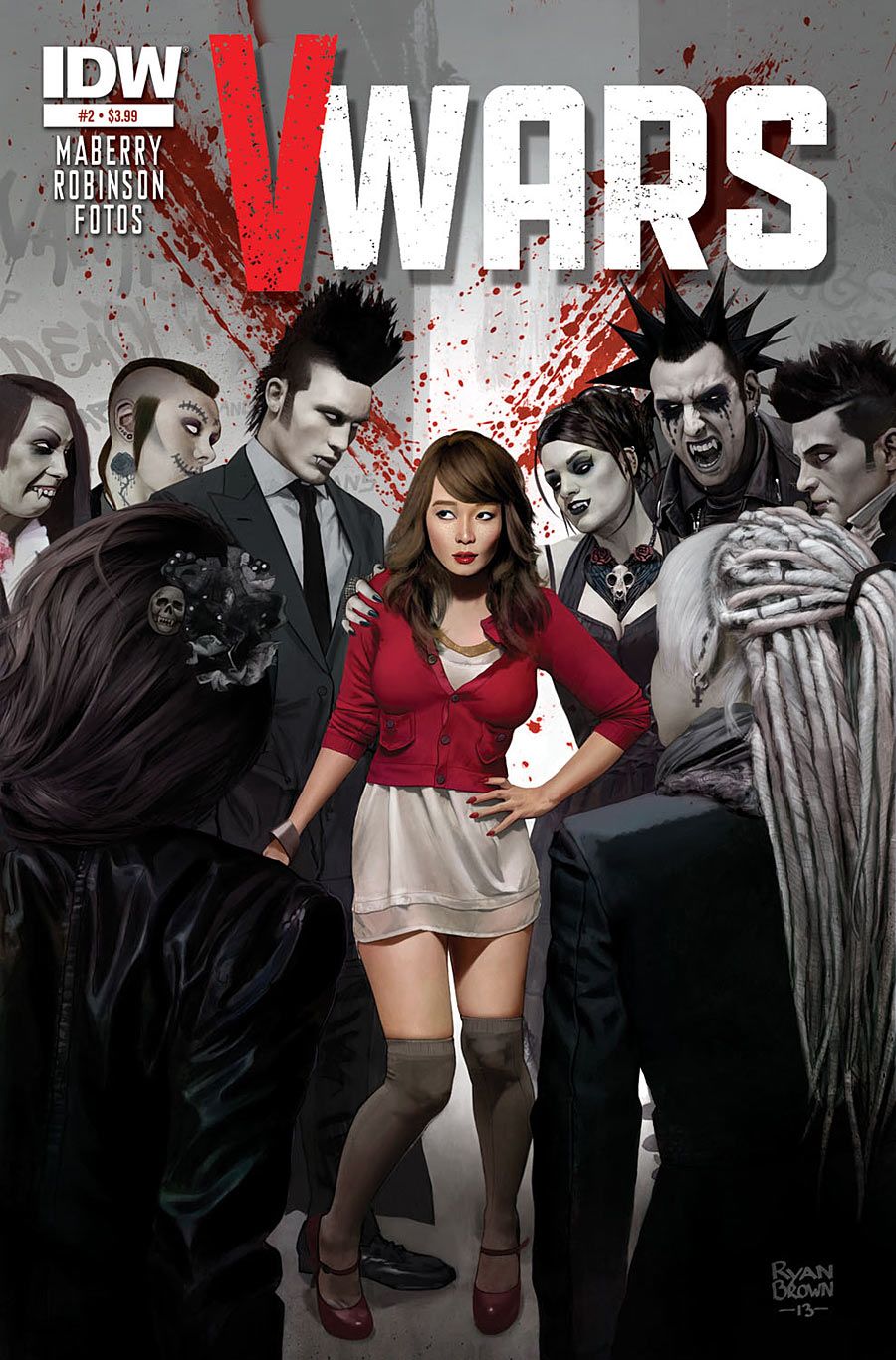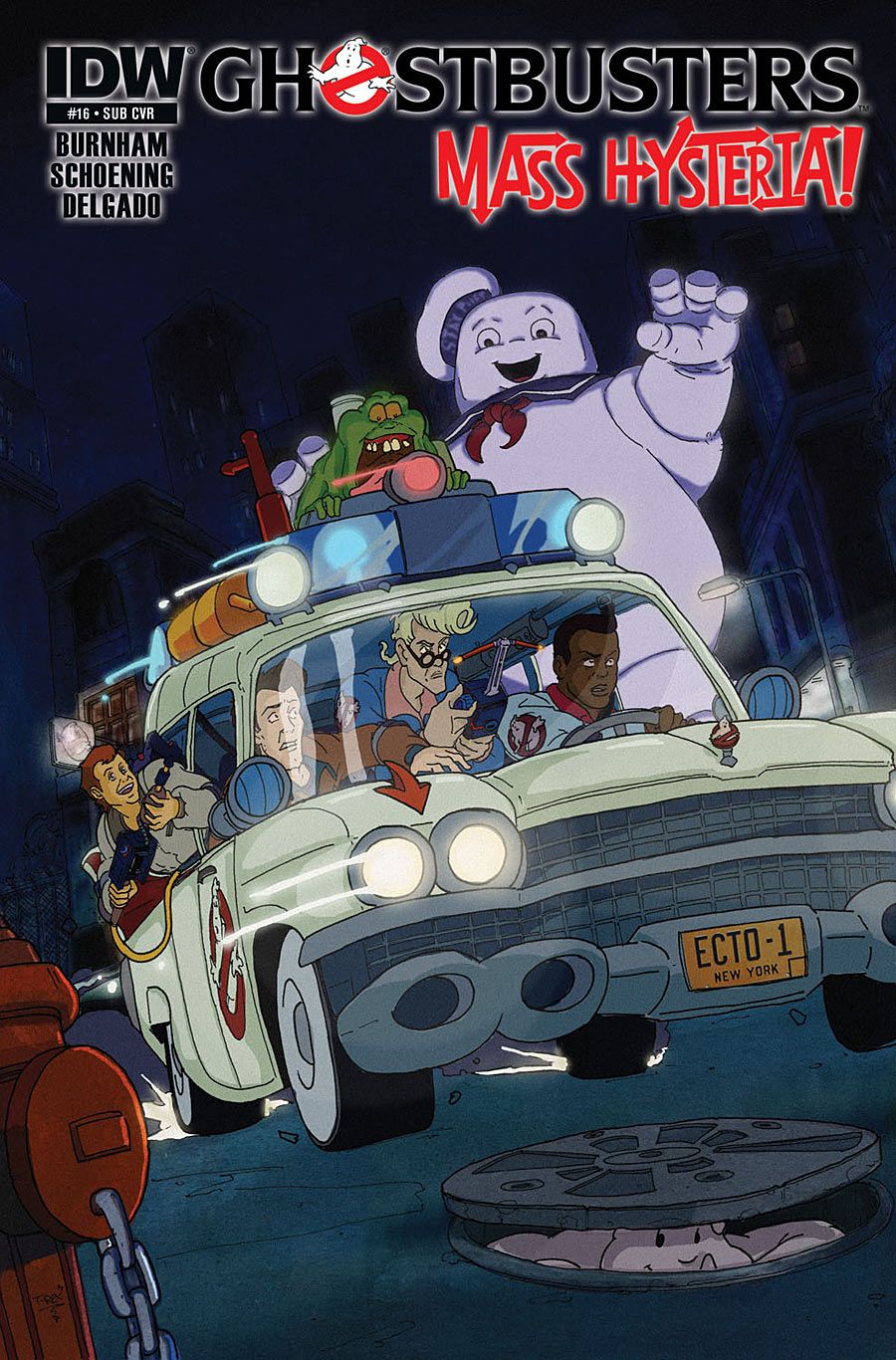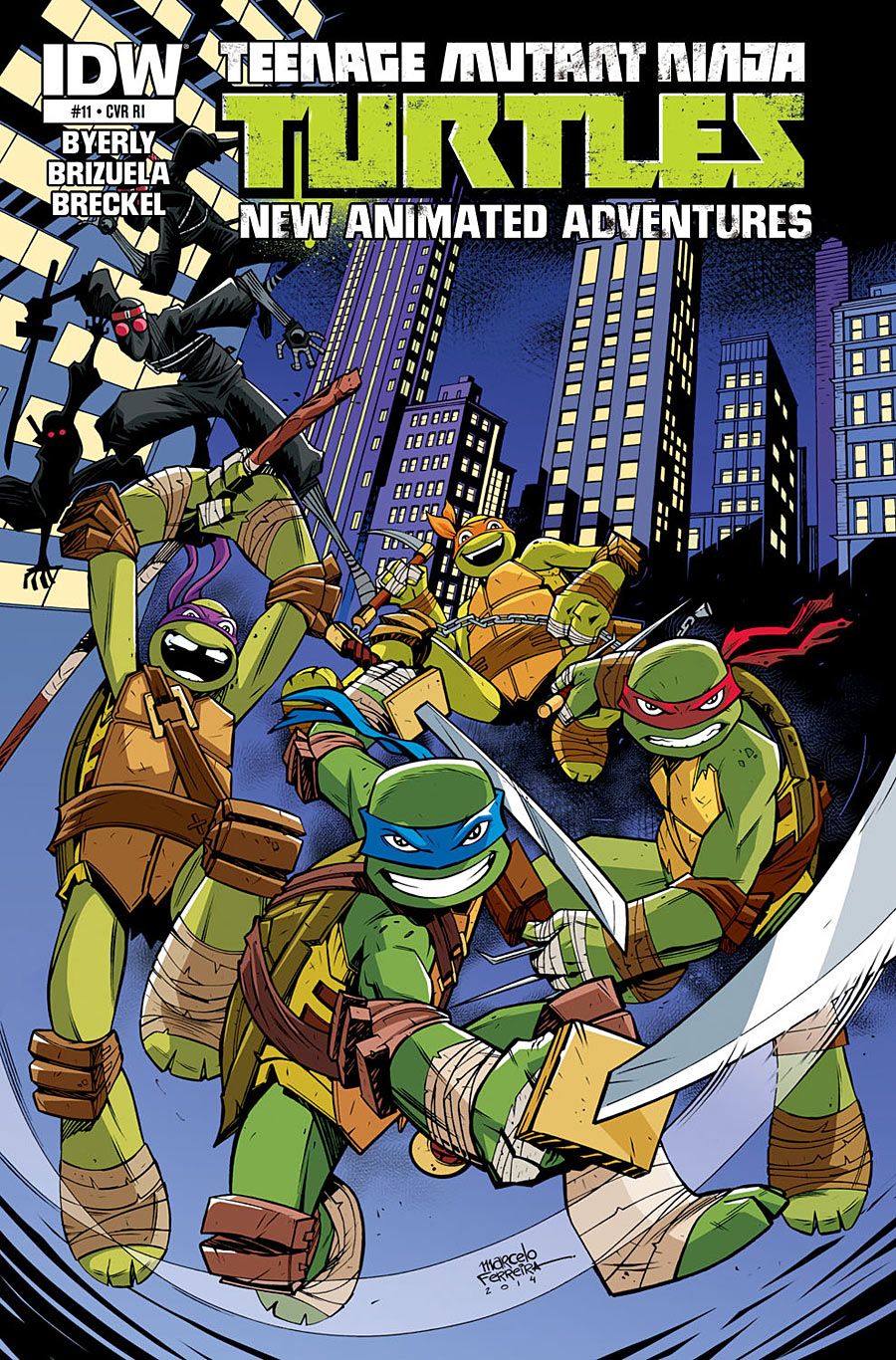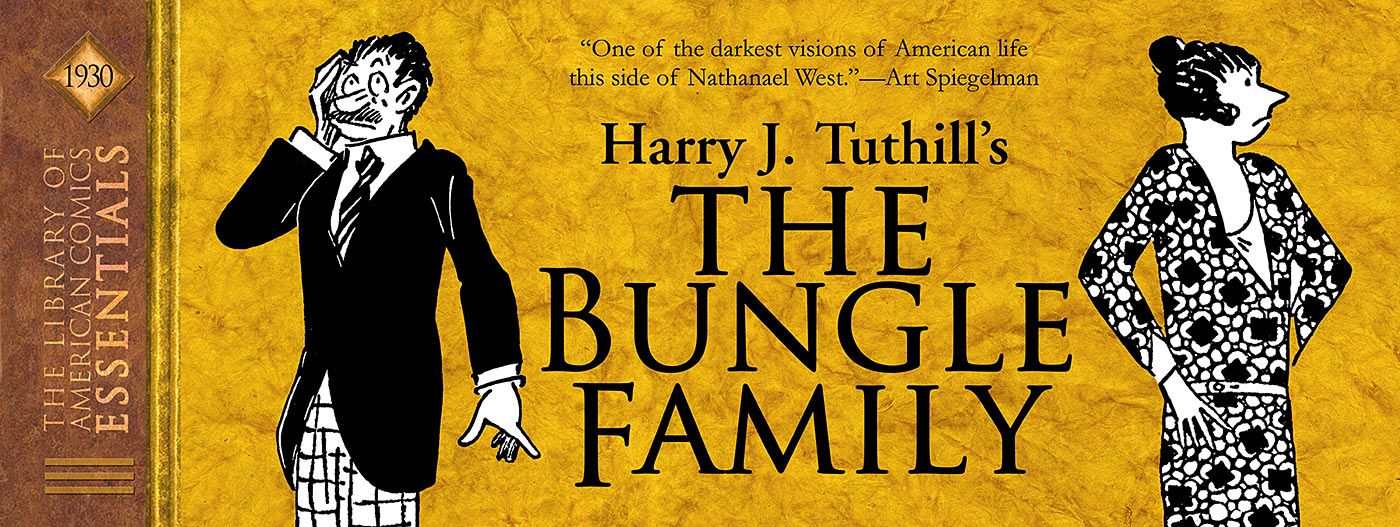In the first half of our interview with Ted Adams, the IDW Publishing co-founder and CEO discussed the company's first 15 years, and the evolution from a creative service business into the publisher of celebrated series like "Locke and Key" and "30 Days of Night."
This week, Adams discusses the present and future of IDW, which include a focus on growing the audience for licensed books like "Transformers" and "Teenage Mutant Ninja Turtles," new creator-owned series like "V-Wars" and "Ragnarok" and more high-profile archival releases, like Charles Schulz's "Peanuts" and Dave Gibbons' "Watchmen" getting the oversized "Artist's Edition" treatment.
CBR News: Ted, for the second part of our conversation, let's move towards the present and the future. How do you see IDW's current identity and niche within the industry? From an observer's perspective, it appears that there are three important elements of the publishing line -- licensed books, archival material and original concepts. Those three are all very different -- what do you see as the unifying identity of IDW?
Ted Adams: I get asked this question a lot -- in fact, we have a retail consultant, and he's often saying, "You need to put IDW in a box. You need to decide what you want to be." I keep saying, "No, I know what we are. We're a diverse publisher." Nobody goes to Random House and says, "You're a fiction publisher." They're Random House. They're a publisher. We're a publisher. Our books fall into the categories that you just described. There's no question, there are lots of little kids out there who only know IDW from "My Little Pony." There are plenty of people who think "Locke and Key" when they think "IDW." Lots of people who think "[Teenage Mutant Ninja] Turtles." Lots and lots of people who think, "Those are the guys who do those comic strip reprints," that only know us for the books that we do with The Library of American Comics. Plenty of people who only buy our Artist's Editions. Lots of people who only buy the Parker books.
RELATED: IDW's May 2014 Solicitations: "TMNT" 30th Anniversary, "Hellboy" Artist's Edition & More
My point is, we are a really diverse publisher, which is my way of saying that we're a publisher. But the way comic books are set up, everybody else is put in their little box. Marvel and DC are their superhero universes, Image is the creator-owned company. The human brain wants to put everybody in their little box, and I refuse to be put in that box. We are a publisher. That's how we've always been, all the way back to the earliest days, and that's how we'll be as long as I'm sitting here.

So basically, just about anything can be an IDW book?
All we want to do is publish good books. It doesn't have to be a licensed book, it doesn't have to be a creator-owned book, it doesn't have to be an archival book. Bring us a good book, we'll publish it. We do lots of weird stuff here, too -- weird stuff that I love. We do books with a gallery called Device -- it's a couple who are really old friends of mine and they have this beautiful art gallery, it's mostly sculptures. It used to be based here in San Diego. We've done a couple books with them, we're about to go to press on the third book. It's not a licensed book, it's not a creator-owned book; it's certainly not an archival book about comic books. It's a book for an art gallery. I love it. It's awesome. Anybody who loves art should pick up this book. It's 100 percent not going to appeal to the little girl who buys "My Little Pony," but if you love great art, this is going to be a book for you.
That's kind of my whole point -- I absolutely refuse to be defined as "this or that." If somebody brings us a book that's a great book, we're going to do our best with it.
Obviously every comic book publisher in the direct market is in competition with each other to an extent, but given what we've been talking about, it seems IDW is not necessarily chasing after the same audiences as Marvel or DC or Image. Do you see that?
One-hundred percent. When we started publishing in the very earliest days, we decided that weren't going to do superhero comics. We just weren't, because there was no reason to do superhero comics. Marvel and DC do them as good as they can be done.
We've of course dabbled in superhero comics here and there -- the stuff that we do with John Byrne like "Next Men" kind of falls into that superhero category. But we just never had any interest in building a universe and doing that whole thing. We just don't spend a lot of time thinking about what other comic publishers are doing. We spend time on figuring out, "How can we make our books better?" and, what's out there that we can bring to market that we like. If you look at the history of IDW, in the early days we were publishing the things that I was passionate about. The first books were done with friends of mine, we went out and got the rights to do reprints of First Comics, because I grew up loving "Grimjack" and ["Jon Sable Freelance"] -- to be able to republish those for a modern audience was something I really wanted to do. Then we brought on Chris Ryall, and he brought his passions to projects, and then every editor we've brought on since then -- I think we're up to probably 10 editors at this point -- they all have their own passion.
I always tell people here, "If you're passionate about something, I will get behind you and support you." I may not share that passion personally, but I will get behind you and publish this, and work with you to try and make this as successful as you can. For the folks that embrace that, guys like Chris Ryall and Scott Dunbier and plenty of other editors who work here, that's where we're successful. They bring their passion, and I as a publisher stand behind them and try and help them bring that market in the biggest way possible.
Given the position that IDW is in now, and looking at the year-end Diamond numbers -- IDW is No. 4 in both dollar and unit share, as has been the case for the last couple of years -- what type of growth are you hoping for in the future?
We publish a lot of books, probably averaging 70-plus books a month, between the comics and the trades and the hardcovers. That number's probably a pretty good number for us. What I'm really interested is, how can we expand the market for those books? I see it in a variety of ways. What can we do to help the direct market sell our books better? One of the things that I think that IDW needs to step up its game in 2014, one of the things I've been talking to Dirk Wood, who runs our marketing department -- what can we do to help our direct market retailers understand our product better, and communicate that information better to their customers. Is that marketing collateral? Is that conversation with them on a more regular basis? What is it that we can do to make them understand that our "Teenage Mutant Ninja Turtles" book is as good or better as anything else they're selling? That's a really important part for me this year, to really help our direct market retailers know what we're doing, and help them tell their customers about what we're doing. That's one part of it.
But beyond that, I really feel like we need to then expand distribution to where comics aren't currently being sold, and then drive those people back to those direct market stories. One of the things that we launched last year was a new product category called the "Micro Comic Fun Packs." It's a small version of a comic book that's packed in a cello pack with a bunch of collectible elements. So we did one for "My Little Pony," they're a $3.99 price point -- comes with a little comic book, and it comes with stickers, and it comes with a poster. There's this real high collectible component to it. We placed those all over the place. They're at Target, they're at Toys R Us, they're at Walmart -- every mass merchant that you can imagine, these Micro Fun Packs have been placed there though the holidays. Our sell-through on these things were astonishing. It was way better than we expected. We of course made some money from that product, but that Fun Pack has information in there about the Comic Shop Locator service. Our goal is, if you're a kid, or you're the parent of a kid, and you pick up this fun pack at Target, you bring it home and you like it, if you want more content, really the only place to go get that is through your comic shop.
Our goal here is to try and expand distribution in the form of new products, and new interesting ways to get comics in front of kids, and drive those people to comic stores. That's a big goal for us this year. For the Fun Pack program, we're expanding this year -- we'll be doing "Teenage Mutant Ninja Turtles" and "Transformers." They won't be movie-specific products, but those fun packs will be [available] the same time that the major "Transformers" and "Teenage Mutant Ninja Turtles" movies are on screen.
We have lots of these things going on, because it's something that I'm always thinking about. The other thing we have going on right now is, there's IDW comic in the "Transformers" toys. So when a kid buys the "Transformers" toy, they get a free, full comic book. In the back of that comic book is all advertising about comics we're doing, and the comic shops where you can go get them. The goal hopefully being that a 12-year-old who doesn't even know that comic books exist, buys this Bumblebee toy, gets the comic book, likes it, and says, "Hey, I want to get more of these." He's not going back to Target to get those, he's going to go to his comic store to get those.
I feel like we're making really good books. I've frankly become kind of obsessed with "how do we get those books in new distribution points?" and then "how do we bring those people back to comic stores?"
That definitely sounds like a worthwhile goal, and not an easy task.
We as a community -- meaning the publishing community and our distributor -- I just think we fail miserably when it comes to getting that casual consumer engaged in our product, and getting them into comic stores. It makes me crazy that basically every form of entertainment is comic book-driven -- TV shows, movies, video games -- and we just do a lousy job with getting all those people back into comic book stores. I'm just one guy here trying to get it done, but I am determined to do everything I can to make this happen. "My Little Pony" has become such a breakout hit, and is a product that reaches little kids in a way that they haven't been reached with comics in a long time. I've taken that opportunity to try and build from that property. I've talked to lots of retailers who tell me that our "My Little Pony" comics have brought in lots and lots and lots of little kids to comic book stores. So I know it's working, and I know it can be done.
Release-wise, what's on the horizon for IDW in 2014 that you're excited about?
Well, there's a bunch. [Laughs] I could go on for an hour about these. The first one is "V-Wars," which is by Jonathan Maberry and Alan Robinson. It actually spins out of a prose anthology that we did that was edited by Maberry. One of our Free Comic Book Day comics is a V-Wars comic, which then immediately leads into this ongoing series. We just got the numbers for that Free Comic Book, and they're tremendous. They way exceeded my expectations. We're also developing that as a TV show for our entertainment division.
The next one is "Winterworld," by Chuck Dixon and Butch Guice. "Winterworld" is a book that we published with Chuck as a collection, it was a book that he'd done many years ago. So we're bringing that back. I've actually been reading the scripts over the last couple of nights, and Chuck has brought his absolute A-game to this, and Butch's art is really extraordinary. Also got that one in development for entertainment, and hoping to make a big announcement -- if things work out with the "Winterworld" TV show the way it looks like it's going to work out, we're going to make an announcement soon that's going to absolutely shock people. It's so amazing.
The next one is "Little Nemo: [Return to] Slumberland" by Eric Shanower and [Gabriel] Rodriguez. I've read all of Eric's scripts on that, they're as good as you would expect them to be, and Gabe's just getting started on the character designs there. That one's going to be something special.
The last one is "Ragnarok" by Walt Simonson, which is his take on Norse mythology. I think that kind of speaks for itself. We've got lots of other creator-owned things, but those are four that really stand out for us this year. Like I was saying before, I'm really determined to help the direct market sell these books. We're going to get behind these books in a good way.
On the Artist's Edition side, honestly, I can't believe the Artist's Editions that we're publishing this year. We're going to do "Watchmen" by Dave Gibbons, we're doing "Peanuts" by Charles Schulz, we've got "S.H.I.E.L.D." by Jim Steranko, we've got "Hellboy" by Mike Mignola. To think I'm publishing these books is crazy. We're publishing "Fourth World" by Jack Kirby. I'm going to publish Jack Kirby "Fourth World" this year -- that's a pretty astonishing thing.
On the licensed comics front, we're doing "Angry Birds." "Angry Birds," for us, is a property that we're hoping to bring new customers into comic stores, and really gives us that chance to expand distribution. We'll be doing Angry Birds Micro Comic Fun Packs, again with the goal being to get people reading those, and getting people who aren't currently reading comics to start reading those, and drive them into comic stores.
We're really in this fortunate position right now where if you look at our core licensed properties -- whether that's "Transformers" or "Star Trek" or "X-Files" or "Teenage Mutant Ninja Turtles," "My Little Pony," the Cartoon Network [books] -- they're all performing. Those books are all, in many cases, in really high issue numbers. The Turtles are in the 20s and 30s, the Ponies are going towards the 20s, 
"Star Trek's" in its 30s. These are books that have really found an audience, and that's really due to the creative work. There are all kinds of fun things going on in all those various universes.
On the archival front, there are a couple of really big Library of American Comics books that are going to happen this year that I'm excited about. There's the third volume of the Alex Toth biography; the first two books in that series are amongst the best things we've ever published. We've got Bobby London's "Popeye," which is coming out in the next couple of months, which is a book I'm personally really excited about. We're doing a book with "Ripley's Believe It or Not" this year. We're doing more books with DC -- we've got the first "Batman" strip book that we're doing. The Library of American Comics has got, as usual, all kinds of interesting things going on.
Yoe! Books is the same. Craig just turned in a book which is called "Alice in Comic Land," which is basically a collection of "Alice in Wonderland" stories from the history of comics, with lots of good history about the stories. He does this amazing job of going out and tracking down all these comics that just haven't been seen for, in many cases, 30 or 40 years.
I'm really passionate about the books we publish. These are books that I love. When they come in, I sit down with them -- the Library of American Comics, the Yoe! Books or the Artist's Editions, I put right into my briefcase so I can take them home. This isn't just a job for me, this is my passion.
It appears that IDW has a lot of deserved confidence in their licensed books, but is there definitely a deliberate balance in not putting too many eggs into that basket, because by the nature of licensed books, they're not something you're going to necessarily have forever?
I don't think so. We're not expecting the little girl who buys "My Little Pony" to buy "Judge Dredd." I don't think that we're concerned that we're saturating the market in that way, it's more figuring out, "Is there an audience for this that's going to seek this out?" I really think these big brands that we do -- particularly if you look at "Transformers," "Star Trek" and "Teenage Ninja Mutant Turtles" -- those three giant entertainment brands are multigenerational brands, all three of them. I don't really believe that the guy who's buying "Turtles" is necessarily buying "Transformers," or even buying "Star Trek." They're bring their own fanbase to those comics.
We don't want to saturate the market with too much "Transformers" content, or too much "G.I. Joe" content, or too much "Star Trek" content. We are always trying to make sure that we're bringing the right amount of product within each brand to the market. We're an aggressive publisher, and we fall in love with lots of projects, and we want to bring lots of books to the market. We have occasionally published too much within any individual brand.
How important to IDW are partnerships with imprints and other publishers -- which currently include MonkeyBrain and Darby Pop?
All our imprints are really important to us. It starts with Library of American Comics, the big giant one for us -- Yoe! Books, certainly MonkeyBrain -- [MonkeyBrain founders] Chris [Roberson] and Alison [Baker], I've known them for a while now. We published Chris's "Memorial," which is a book that is very dear to my heart. I trust them, and their creative sensibilities match up with my own on almost a book-for-book basis. When they announced that they were doing MonkeyBrain, I wanted to try and be the home for as many of those books as we could be. Certainly, the MonkeyBrain creators can go anywhere they want, it's not like Chris or Allison are saying, "No, you have to do this with IDW." But we just wanted them to know that we would love to do any books that they want to do with us.
Darby Pop is a fun way for us to be diverse. Those guys are really passionate. Those are books that are completely packaged by them; our editorial on those books is very, very minor. They have [David] Wohl, who is running that for them, who is a great editor, a long-time editor for comics. It's a nice way for us to be able to expand without having to put our own resources towards it, because those books are financed by them, and editorially driven by them.
Imprints have always been an important part of what we do. We've published a lot of Desperado books over the years, we're always available whenever they want to do new books. It's a nice way to allow us to be diverse, because you've got people who are out of house, putting together books and then bringing them to us. That, just by its sheer nature, brings diversity to what we're doing, because it's literally not being done under our roof.
Are there any final words you'd like to share about IDW looking forward?
The only other thing I would say is the other thing that I'm fortunate with IDW is that I've had the same business partner since we started in 1999, Robbie Robbins. I'm always the guy who's out doing things like this interview, the more public face of IDW, but Robbie has been there, by my side, from day one. There is no IDW without Robbie. It's important to me that he gets recognition as well for the success we've had over the last 15 years.

